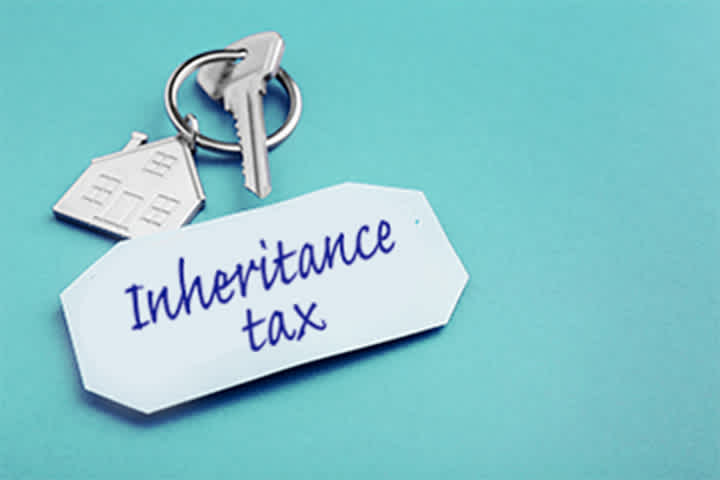Gifting money: register or take the risk?
Keytrade Bank
keytradebank.be
April 14, 2025
4 minutes to read
Since 2025, the suspect period in Flanders has been extended to five years. The Walloon provinces had already implemented this change and Brussels is likely to follow. This makes gifting without paying gift tax a riskier bet. Is this type of gifting no longer a safe bet or is it still worth considering?
1. How can you gift movable property?
If you want to gift money or other movable property such as shares, jewellery, a car or artwork in Belgium, you have two options: register the gift or do not register the gift. Both options have a common objective – the transfer of assets – but are very different from a tax perspective.
- Registering the gift: You have a notary draw up an official deed. This deed is registered with the tax authorities, which means that you pay gift tax on the gifted amount or the value of the movable property. In return, you have the legal certainty that the gift is formally registered and third-party disputes will be more difficult. Moreover, as a rule, the beneficiary does not have to pay inheritance tax on this gift, even if you die shortly after giving the gift.
Although it is a bit riskier, you can also personally draw up the gift documents and register them with the tax authorities. The reason that this entails a greater risk is because a notary ensures that the paperwork meets all legal and regulatory requirements. He or she can also help you link specific charges and conditions to the gift.
Good to know: a deed of gift must always be drawn up by a notary when gifting shares in a company and gifts with reservation of usufruct.
- Not registering the gift (manual gift or bank gift): You transfer the gift directly without using a notary. A manual gift, for example, means that you hand over cash or an object, while a bank gift involves transferring money from one account to the other. No notarial deed is required in this case and you do not need to register the gift. Outcome: no gift tax is owed. This is easy and free of charge (and does not involve notary fees either). But there’s a catch: as the person giving the gift, you must still be alive for a certain period after the gift, which is referred to as the 'suspect period', in order to definitively avoid inheritance tax. If you die 'too soon', the gift will still be included in your estate and your beneficiary will have to pay inheritance tax on the gift. And inheritance tax is usually higher than gift tax.
2. What is the gift tax on movable property?
If you register the gift, you are required to pay gift tax. The amount depends on the region and relationship between the gift giver and gift recipient. In Belgium, this amount depends on the tax residence of the gift giver, not the recipient.
Flanders and Brussels
- 3% for gifts to immediate family (grandparents, parents, children, grandchildren) or between partners
- 7% for gifts to all other persons
Wallonia
- 3.3% for gifts between spouses, registered partners and recipients in direct line of descent
- 5.5% for gifts between all other persons
From 3% to 7%: registering a gift is costly. If you use a notary, you also pay a fee. If you want to gift 100,000 euros to a child, you will have to be pay 3,000 euros in gift tax in Flanders. That may seem like a lot … until you add inheritance tax to that amount. In the worst-case scenario, your child will have to pay as much as 27,000 euros in inheritance tax on that same 100,000 euros after your death. The suspect period is essential in determining whether or not to register a gift.
This is the period of time during which the gift giver must continue to live after the gift in order to avoid inheritance tax being payable. For the sake of clarity: this suspect period only applies to unregistered gifts. There is no suspect period for registered gifts.
3. How long is the suspect period?
Until recently, the suspect period in all regions was three years. In the past few years, the regions have all approached this differently.
- In the Walloon provinces, the suspect period was extended from three to five years back on 1 January 2022.
- In Flanders, the suspect period has been extended from three to five years since 1 January 2025.
- In Brussels, the suspect period is still three years, but there is a good chance that the new Brussels government will extend this as well.
In other words, if you give a gift today in Flanders or Wallonia without registering it, you must still be alive for five years afterwards. Otherwise, the recipient will have to pay inheritance tax on the gifted amount. For gifts given in Flanders before 2025, the suspect period remains three years, but new bank and manual gifts are subject to the stricter rule.
What does this extension mean in concrete terms? A higher risk of (high) inheritance tax. The chance of the gift giver dying within five years is, of course, greater than with a three-year suspect period. A longer risk period therefore makes an unregistered gift less attractive. It is no secret that the government intends to convince more gift givers to pay gift tax immediately, so that the tax authorities can get their share. After all, if you do not register a gift and survive the deadline, the tax authorities will lose income (no gift tax and no inheritance tax).
4. Why is it still worthwhile not to register a gift?
There are a few important reasons why this still pays off, provided it is approached carefully:
- Potential of zero percent tax: No form of asset transfer is as cheap as an unregistered gift. If the gift giver survives the suspect period, the beneficiary pays nothing at all – unlike a notarial gift (at least 3%) or passing estates through inheritance (up to tens of percent in inheritance tax). This 0% option retains its appeal.
- Post-registration option: A bank gift does not have to be an 'all or nothing' option. You have the option to secure your 'bet' later on. Suppose you gift a large amount in 2025. The first three years go by just fine, but in year four you suddenly receive a serious diagnosis. You can then decide to register the past gift at this point in time. This is possible even if the gift giver is in a comatose state. You will still have to pay gift tax, but your beneficiary will not have to pay the high inheritance tax. Keep in mind that timely action is essential because registration must take place before death. For the past few years, it has been possible to register a gift online.
- Maintaining flexibility and gradual gifting: With unregistered gifts, you can easily spread the amount of the gift over time. For example, you could give a (smaller) amount to your children each year without having to go to the notary every time. This allows you to transfer your assets gradually, spread the risk and decide whether or not to register the gift on a continuous basis. However, this requires a bit more long-term planning.
- Succession insurance as a safety net: An alternative is to take out a succession insurance policy. Your next of kin can use it to pay all or part of the inheritance tax in the event of your sudden death due to an accident. Of course, such insurance also comes at a cost.
5. What are the main risks of not registering a gift?
Whether or not to register a gift requires evaluating the trade-off between paying nothing now – with the chance of paying a lot later – versus paying a little now and being done with it. It is no coincidence that a bank gift is also called a gamble gift. After all, you’re betting that you’ll stay alive long enough. If things go wrong – you die during the suspect period – the tax bill will be substantial.
After giving a bank gift, you have to 'stay alive' for a few years to be safe. This uncertainty can have a psychological toll. For someone who is elderly or in fragile health, staying alive for five years is a little more challenging than three years. The risk – and therefore the mental burden – is greater.
Finally, you need to formalise a manual or bank gift properly to avoid any discussions later on. You must provide supporting documents: the transfer receipts and signed documents in which the recepient accepts the gift. These documents must be kept for years. For example, if the tax authorities are unsure after your death whether something was a gift, the beneficiary must be able to prove this.
Not quite ready to start thinking about gifts?
At Keytrade Bank, you can easily put your money to work in the meantime


